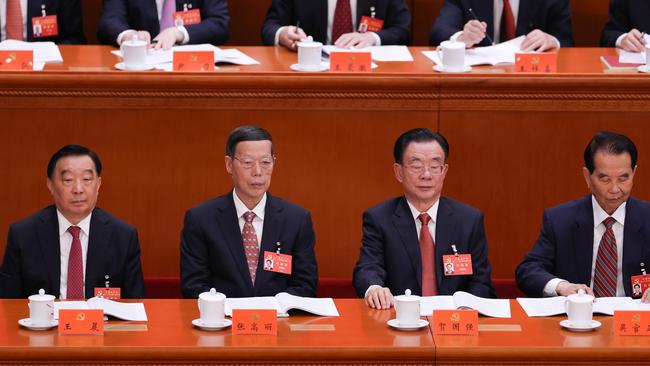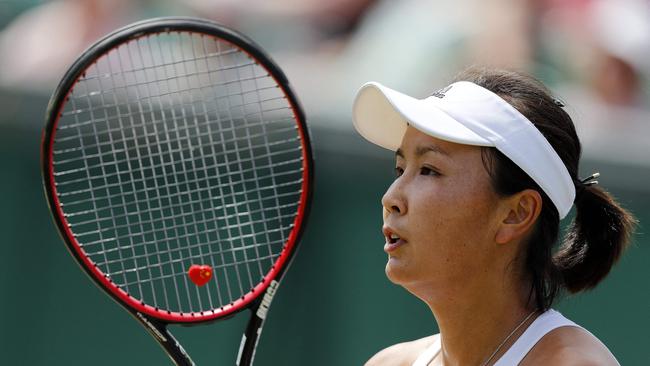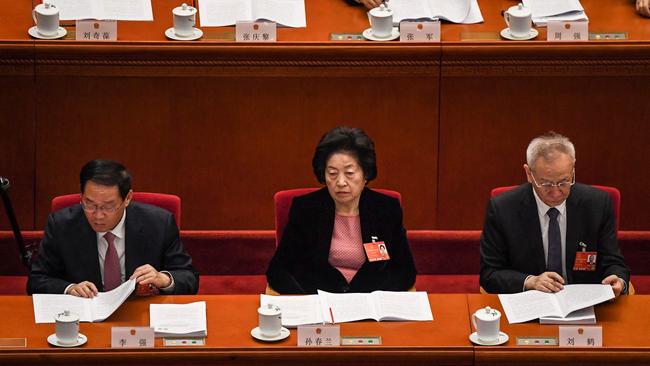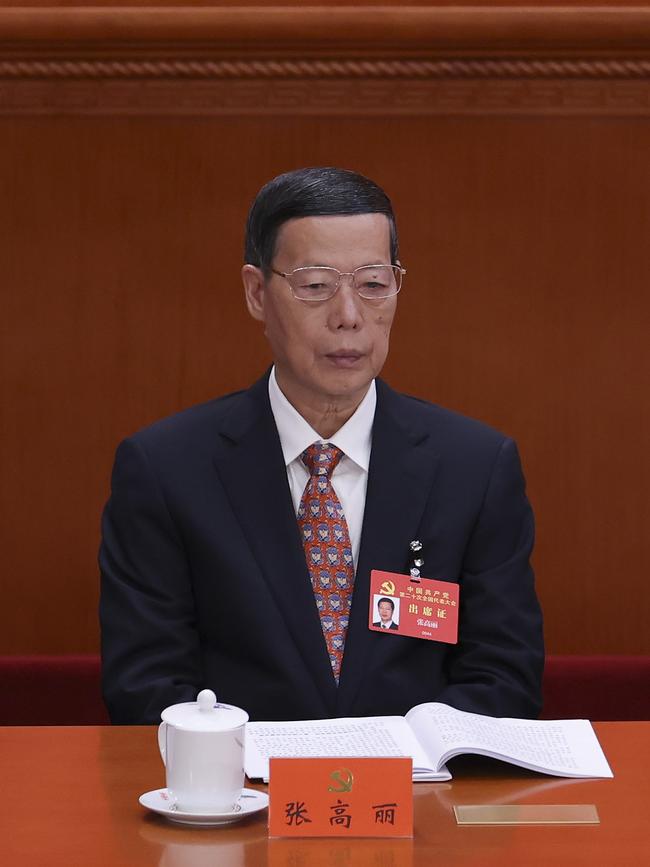Xi ally Zhang Gaoli is back in public eye after sex claims by tennis star Peng Shuai
China’s stuttering #MeToo movement appears to have come to an abrupt halt with the reappearance of Zhang Gaoli and the purge of the last woman from its political bureau.

China’s stuttering #MeToo movement appears to have come to an abrupt halt with the reappearance of Zhang Gaoli, the top official accused of sexually assaulting the tennis star Peng Shuai, and the purge of the last woman from its political bureau.
Zhang, 75, who is now retired but was once one of the most powerful men in China, could be seen sitting expressionless in the front row at the party congress that cemented President Xi’s grip on power last week. It was his first public appearance since last November, when Peng accused him of coercing her into sex. The allegations were censored and she disappeared three weeks later.
Peng, 36, briefly reappeared during the Winter Olympic Games in Beijing in February, where she retracted her accusation in a stage-managed interview with a French sports newspaper. It was seen as an effort by Beijing to dispel international criticism. Zhang’s prominent seat at the congress shows his party standing is unaffected.

The practice of appointing at least one woman to the Politburo has been abandoned after two decades. Sun Chunlan, 72, the only woman on the last Politburo, is expected to retire from her post as a vice-premier in March.
The absence of a woman has fuelled concerns about gender inequality and fears that a male-only leadership will be hostile to women’s rights. The #MeToo movement has struggled in China amid deep-rooted social prejudice.
“It is disappointing because whatever small space that was carved out for women to exercise their political power is now gone at the top level,” Minglu Chen, a researcher on gender and politics at the University of Sydney’s China Studies Centre, said.

“But I’m not surprised because this has been a masculine patriarchal institution and it hasn’t changed,” she told the South China Morning Post.
No Chinese woman has made it beyond the Politburo to become the party chief or clinch a spot on the standing committee, despite Mao Zedong asserting that women “hold up half of the sky”. Xi, in his report to the 20th party congress, pledged that gender equality would become a cornerstone policy.
A national report on women’s social status, released last year, promised “further optimisation of gender equality and of the social environment for women’s all-around development”.
It added: “The recognition of equal social status for men and women reached an unprecedented height,” and noted that more women were “seriously casting ballots” at local elections in the past ten years. Nearly one in three women had expressed a willingness to stand in local elections, the report said.

The odds remain stacked against women wanting to rise through the government, however. There are 28 million female party members, less than 30 per cent of the membership of the ruling party. Their numbers dwindle toward the apex of power. Steady Of the 2,296 party delegates to the 20th national congress, 619 – or 27 per cent – are women. This number has been touted as progress over the previous party congress, when fewer than 25 per cent of the delegates were women.
At the 205-member central committee, the percentage of women shrinks to 5 per cent, with only 11 female officials.
“It’s all sexism,” Victor Shih, an expert on China politics at the University of California, told journalists yesterday. “At every level, women are getting marginalised to these positions that are not especially upwardly mobile. At a certain point you just hit a ceiling because you’ve never held a serious position. Gender equality is one of the lowest priorities in China’s government.”



To join the conversation, please log in. Don't have an account? Register
Join the conversation, you are commenting as Logout